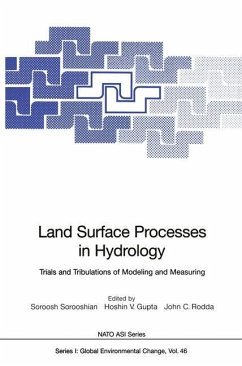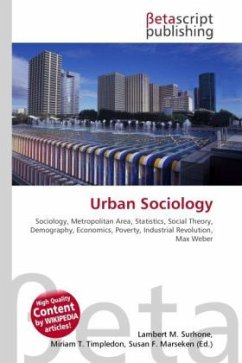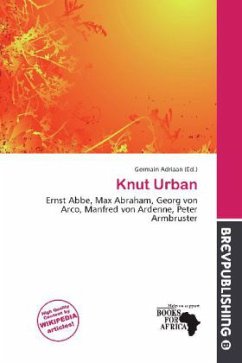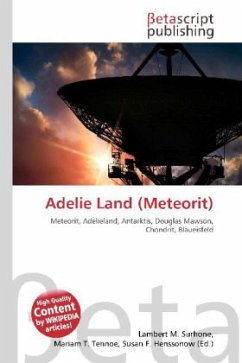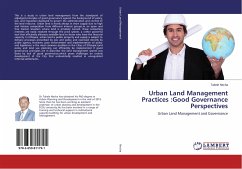
Urban Land Management Practices :Good Governance Perspectives
Urban Land Management and Governance
Versandkostenfrei!
Versandfertig in 6-10 Tagen
58,99 €
inkl. MwSt.

PAYBACK Punkte
29 °P sammeln!
This is a study in urban land management from the standpoint of adjudged principles of good governance against the background of policy, law, and regulation deployed to govern the administration and control of the land resource. Urban land is nearly always in short supply due to high and intense competition from different interest groups.In an open and free market situation where land is privately owned, these competing interests are easily resolved through the price system, a rather powerful tool that efficiently allocates available land to those who have the financial capacity. In Ethiopia, ...
This is a study in urban land management from the standpoint of adjudged principles of good governance against the background of policy, law, and regulation deployed to govern the administration and control of the land resource. Urban land is nearly always in short supply due to high and intense competition from different interest groups.In an open and free market situation where land is privately owned, these competing interests are easily resolved through the price system, a rather powerful tool that efficiently allocates available land to those who have the financial capacity. In Ethiopia, urban land is public property and supply is subject to delivery processes prescribed by law and policy and exercised directly by public agency. However, poor enforcement and implementation of policy and legislature is the most common problem in the Cities of Ethiopia.Land policy and land use planning can efficiently be implemented if good governance principles are in place.But the land management system was beset by lack of good governance,which poses challenges on orderly development of the City that undoubtedly resulted in unregulated informal settlements.




